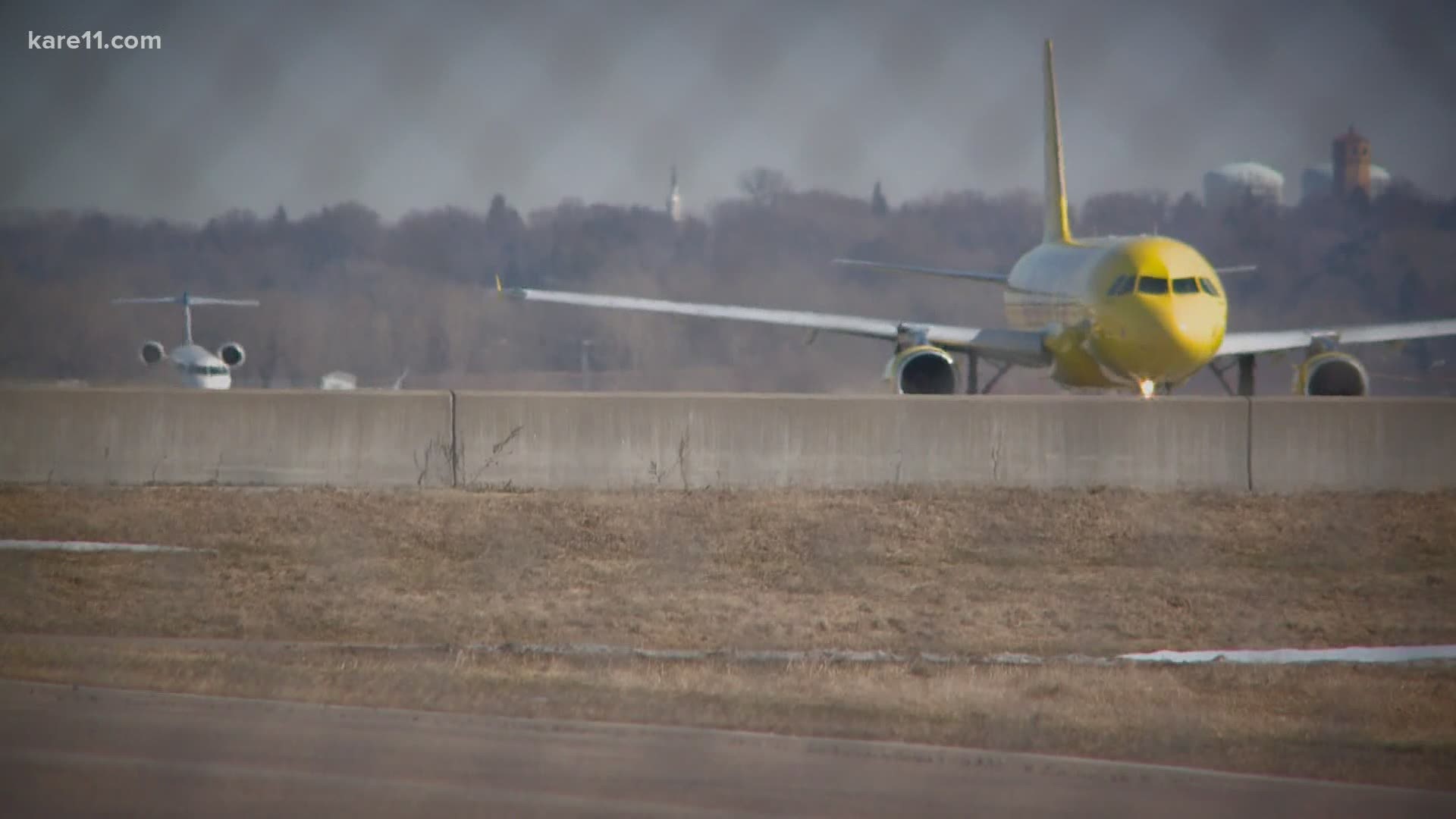WASHINGTON — Board a flight during the pandemic and you'll encounter different rules at different airports and airlines for slowing the spread of the novel coronavirus.
While most major airlines now require face masks, there's no federal rule for wearing one during travel, an absence criticized in an op-ed in USA Today last week, asking U.S. Secretary of Transportation Elaine Chao to step in.
She spoke with KARE 11 via Skype Tuesday about that, refunds for travel cancelled by the virus, and new DOT funding for a highway project in Anoka County.
Jennifer Austin (JA): You've faced some criticism for not creating universal safety procedures for airlines to follow amid the pandemic [or] requiring airlines to give refunds to passengers who've cancelled a flight due to the virus. Why hasn't your agency intervened?
Secretary Elaine Chao: (EC): Oh, we have done a lot. And in fact, those criticisms are unfair, untrue, and kind of emblematic of the very partisan environment in which we find ourselves these days.
Chao points to two enforcement orders issued by the Department of Transportation this spring about airline refunds amid the pandemic. The orders outline what rights an airline passenger has if a flight is cancelled or delayed, and reiterate that airlines are required to give refunds, not just vouchers, for flights they cancel. But if a passenger cancels air travel due to the virus, there are no guarantees.
"We now face a different situation, where the passenger cancels for very understandable reasons," Chao said. "For example, if you're a family of four and you booked a flight to go down to Disney World and then Disney World closes down, or your state has forbidden you to leave your home, well, then what happens then? Who is responsible for the refund? ... We're trying to sort out all of these differences."
Chao said her department has been pressuring airlines to be understanding and more flexible in offering refunds. While she says most airlines have been accommodating, the DOT has reported a staggering increase in air travel complaints.
In an enforcement order issued in May, the department reported that during a typical month they receive around 1,500 complaints and inquiries, but during the months of April and May this year, they reported receiving 25,000 - many related to refund issues.
JA: Do you think airlines should be giving [passengers who cancel] a refund or are vouchers good enough?
EC: So, we have again been working with airlines to really pressure them to be more understanding and more flexible in refunds, and most airlines are. They're offering rebates. They're offering future vouchers. And that's where I think some of the problems come, because some of the passengers want immediate cash refunds. So we're trying to sort out all of these differences and I think the airlines are trying their best. They're cash poor at this point, which is why the government had to give them money so they could meet their payroll. So, they're in a difficult financial situation, as well. But we're working with them to be as understanding, as flexible, as possible. Understanding that 50 percent of the bookings occur, not through airliners directly, but through some of these intermediary internet companies, and they unfortunately are not part of the legislative authority within the law.
JA: Would you take the step of requiring airlines to provide refunds to customers?
EC: Well, I think that's up to the Congress. That is a legislative solution, which the Congress has to take action. It is not part of the executive branch. And we certainly have been talking with the Congress on the limitations of some of the current legislative authority.
JA: How are airlines being held accountable for the safety measures that right now they're self-imposing?
EC: Well, I think it's to their benefit. For example, they've got crews, their own crews, on the airplanes. So, our responsibility as FAA and the airline regulators is more on the aircraft ... We have asked the airlines to increase intensive cleaning protocols for the cabins. We've worked with airports to make sure that there is social distancing, that they're taking the right measures in keeping with local safety regulations. Because local safety regulations differ from place to place, and that's why it's really hard to have a one-size-fits-all safety protocol.
Chao also spoke about recently announced DOT funding for a highway project in Ramsey. The department awarded $40 million to construct two new highway overpasses of U.S. Highway 10/169. Congress has 60 days, or until mid August, to approve the grant. You can hear more about the project in the Secretary's full interview on the KARE 11 YouTube page.

